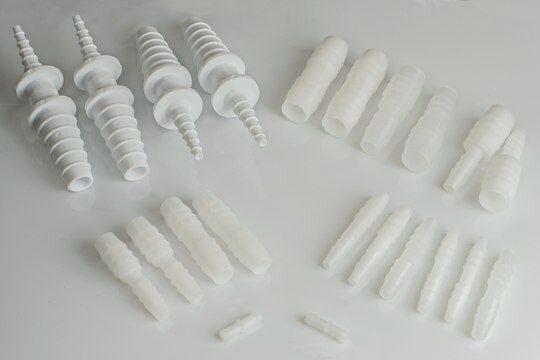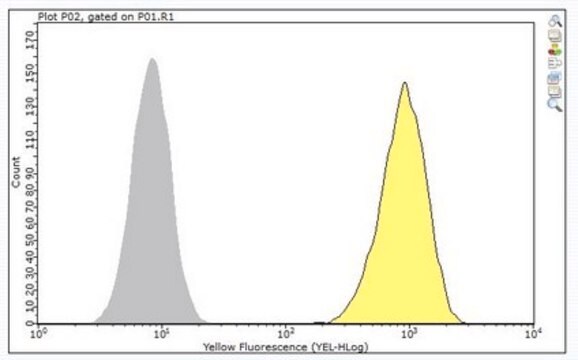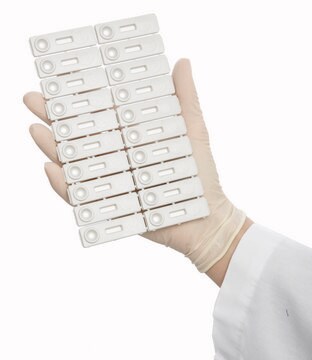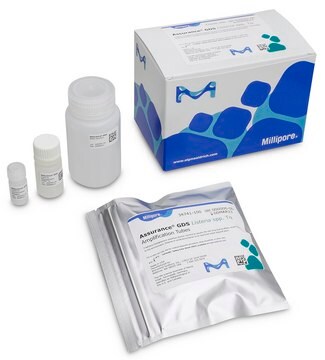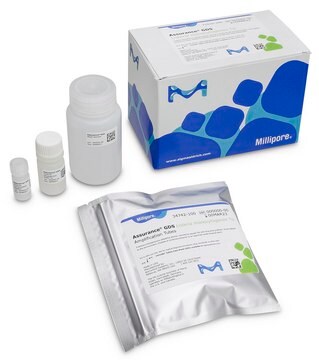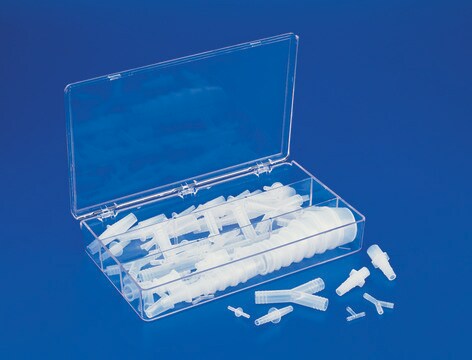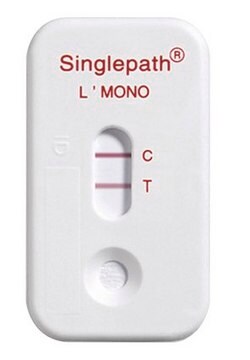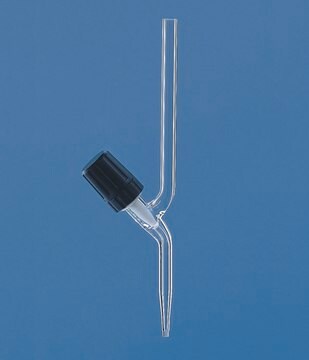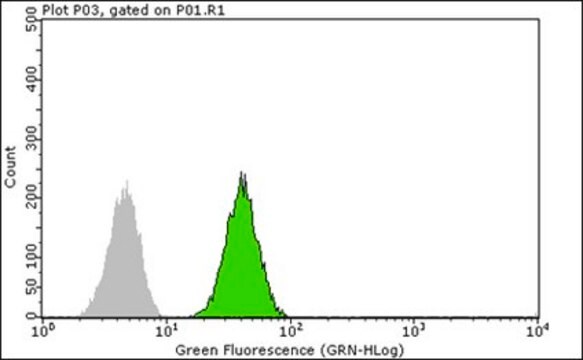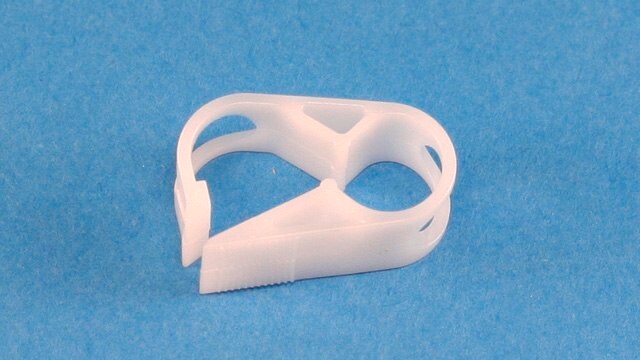ZMS1181
Anti-EphA2 Antibody, clone F2-27 ZooMAb® Mouse Monoclonal

recombinant, expressed in HEK 293 cells
Sinonimo/i:
EC: 2.7.10.1, Ephrin type-A receptor 2, Epithelial cell kinase, Tyrosine-protein kinase receptor ECK
About This Item
Prodotti consigliati
Origine biologica
mouse
Livello qualitativo
Ricombinante
expressed in HEK 293 cells
Coniugato
unconjugated
Forma dell’anticorpo
purified antibody
Tipo di anticorpo
primary antibodies
Clone
F2-27, recombinant monoclonal
Descrizione
recombinant, expressed in HEK 293 cells
Nome Commerciale
ZooMAb® learn more
Stato
lyophilized
Purificato mediante
using protein G
Reattività contro le specie
human
Confezionamento
antibody small pack of 25 μL
Caratteristiche più verdi
Waste Prevention
Designing Safer Chemicals
Design for Energy Efficiency
Learn more about the Principles of Green Chemistry.
Convalida avanzata
recombinant expression
Learn more about Antibody Enhanced Validation
sustainability
Greener Alternative Product
tecniche
ELISA: suitable
flow cytometry: suitable
immunocytochemistry: suitable
western blot: suitable
Isotipo
IgG1κ
Sequenza dell’epitopo
Unknown
N° accesso ID proteina
N° accesso UniProt
Categoria alternativa più verde
Condizioni di spedizione
ambient
Temperatura di conservazione
2-8°C
Descrizione generale
Specificità
Immunogeno
Applicazioni
Evaluated by Western Blotting in A549 cell lysate.
Western Blotting Analysis: A 1:10,000 dilution of this antibody detected EphA2 in A549 cell lysate.
Tested Applications
Immunocytochemistry Analysis: A 1:1,000 dilution from a representative lot detected EphA2 in PC-3 cells.
Flow Cytometry Analysis: 0.1 µg from a representative lot detected EphA2 in one million PC3 cells.
Enzyme Immunoassay (ELISA) Analysis: A serial of dilutions from a representative lot detected recombinant Human EphA2 protein..
Note: Actual optimal working dilutions must be determined by end user as specimens, and experimental conditions may vary with the end user.
Descrizione del bersaglio
Stato fisico
Stoccaggio e stabilità
Altre note
Note legali
Esclusione di responsabilità
Non trovi il prodotto giusto?
Prova il nostro Motore di ricerca dei prodotti.
Codice della classe di stoccaggio
11 - Combustible Solids
Classe di pericolosità dell'acqua (WGK)
WGK 1
Punto d’infiammabilità (°F)
Not applicable
Punto d’infiammabilità (°C)
Not applicable
Scegli una delle versioni più recenti:
Certificati d'analisi (COA)
It looks like we've run into a problem, but you can still download Certificates of Analysis from our Documenti section.
Se ti serve aiuto, non esitare a contattarci Servizio Clienti
Possiedi già questo prodotto?
I documenti relativi ai prodotti acquistati recentemente sono disponibili nell’Archivio dei documenti.
Il team dei nostri ricercatori vanta grande esperienza in tutte le aree della ricerca quali Life Science, scienza dei materiali, sintesi chimica, cromatografia, discipline analitiche, ecc..
Contatta l'Assistenza Tecnica.